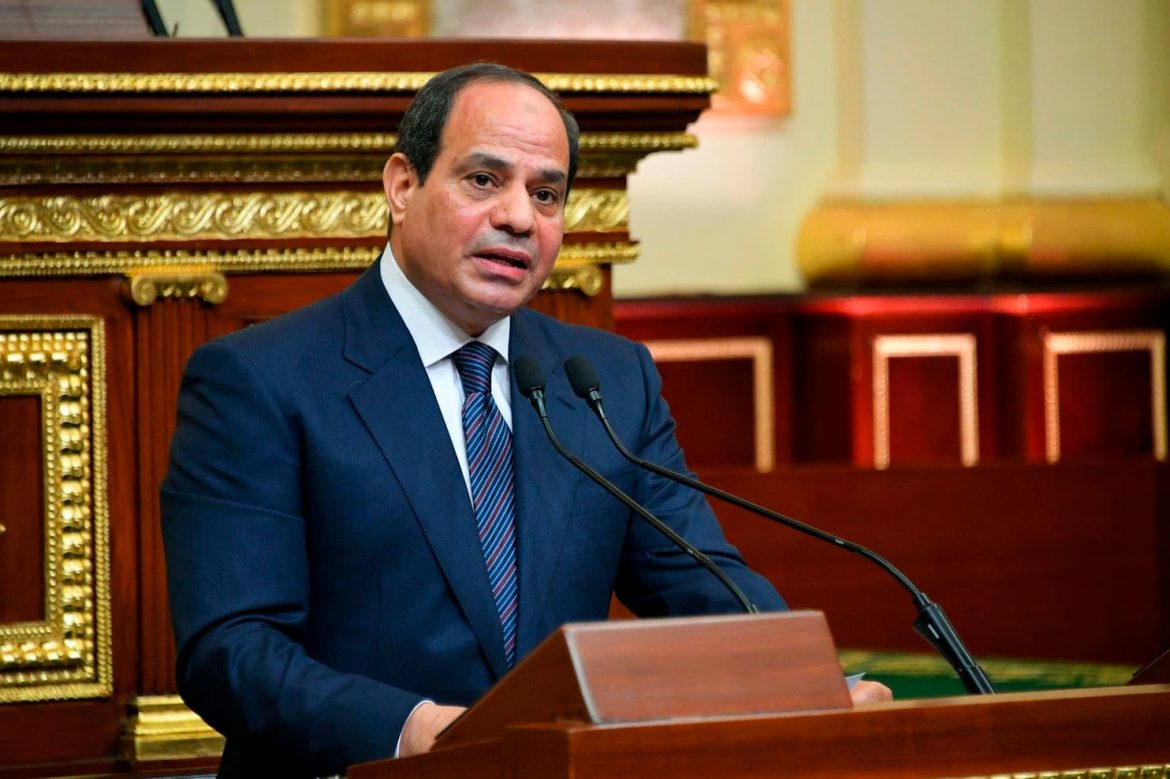By: BAHEY ELDIN HASSAN
Bahey eldin Hassan is the director of the Cairo Institute for Human Rights Studies (CIHRS) and a founding member and chief adviser of the Egyptians Human Rights Forum (EHRF).This has been a grim month for Egyptians who seek a better life and believe in dignity and freedom.
First, on April 9, there was President Abdel Fatah al-Sissi’s visit to the White House, where he received a warm welcome from his U.S. counterpart. President Trump uttered only a few hollow compliments about the situation in Egypt; he made no mention of Sissi’s dismal human rights record. Then, on April 16, the tame parliament in Cairo approved amendments to the constitution that could allow Sissi to remain in office until 2030.
According to statements by two senior judicial officials, the amendments would give Sissi complete authority over the judiciary and institutionalize the military’s dominance over political life. Final approval of the amendments remains subject to a national referendum — which the authorities have now scheduled for Saturday through Monday. Given Sissi’s iron control of the government and the media, his previous record of election fraud and manipulation, and the absence of independent national and international elections-monitoring mechanisms, no one doubts the amendments will pass.
Sissi’s five years in power have brought Egypt to a dark place. Since 2013, the country has experienced the biggest authoritarian crackdown in its modern history, aimed at members of the peaceful opposition, both Islamist and secular. More than 60,000 people have been jailed for political reasons, and hundreds have died in prison.
According to the United Nations, torture has become a common and systematic practice in all places of detention, whether civilian or military; sexual assault is sometimes involved. More than 2,500 people have been sentenced to death by civilian and military courts since 2013; more than 160 of those involved have been executed, according to Egyptian and international rights groups. Most of the victims are peaceful secular and Islamist activists. Presidential candidates running against Sissi were either arrested or threatened. And anyone who dared to object to the amendments was thrown in jail.
Yet the brutality doesn’t stop there. Egyptians now find themselves confronting the phenomenon of “false positives.” That’s a term coined in Latin America, where security forces kidnapped civilians, executed them in remote areas and passed them off as militants killed in combat. Since 2015, Egyptian security forces have announced the killings of more than 460 people, alleging that they were terrorists killed in action. While more than 300 of those killed remain unnamed, numerous forensic reports, as well as testimony and evidence contradict the narratives of the security forces, pointing instead to extrajudicial executions. Some of the victims were in police custody for months before their deaths.
These crimes have been facilitated by the Egyptian judiciary, which has been fully co-opted by the security services. The United Nations has referred to some trials as a “mockery of justice.” The media has been entirely silenced. Dozens of journalists are in jail, and more than 500 news websites have been blocked. And while international rights groups have been forced out of the country, Egyptian rights defenders must contend every day with death threats, prosecution, imprisonment and asset freezes. Holding Sissi accountable in Egypt is an impossibility, meaning his crimes can only be addressed by the international community. It is encouraging that his visit to Washington prompted a wave of critical scrutiny from Congress, the media, think tanks and activists.
This is also why a group of exiled human rights defenders (including me) have now formed the Egyptian Human Rights Forum (EHRF), the first organization of our country to include both secularists and non-partisan Islamists with the aim of promoting a human rights-based political dialogue, both at home and abroad. We aim to ensure that political reform after Sissi rests on the respect of universal human rights for all without any compromises based on political or religious criteria.
Our effort is consciously aimed at the future as well as the present. The warm welcome we have received from the political and human rights community inside Egypt, as well as from the diaspora, are very promising signs. We believe human rights will ultimately prove to be a transcendent framework that bypasses the chronic ideological and political divisions among Egyptians. If that happens, then Sissi’s unprecedented brutality may well turn out to have been partly responsible for that progress.
Source : washingtonpost.com
Photo: Egyptian President Abdel-Fatah al-Sissi addresses the Egyptian parliament in Cairo on June 2, 2018. (Egyptian Presidency Media office via AP, File)
Share this Post

